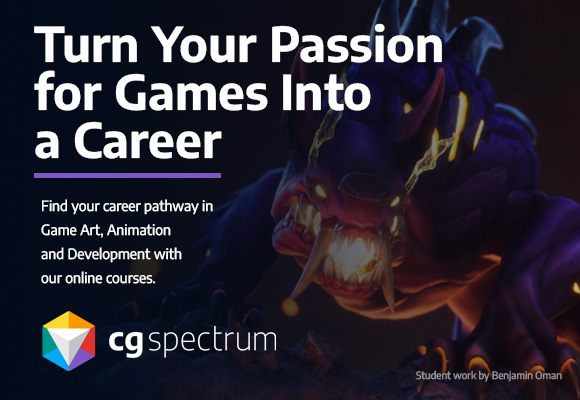The World’s Best Game Designers on Creativity, Failure, and Grit

Like any artistic process, game design is hard. Sometimes, really hard. And if bringing a completely new game into the world isn’t daunting enough, many designers struggle with the daily setbacks that go hand-in-hand with all forms of creative risk-taking.
So when you see the accomplishments of the game industry’s top game designers — people like Hideo Kojima (Metal Gear), Richard Garriott (Ultima), Will Wright (The Sims), and other greats — it’s easy to imagine them as game design “gods” who created their masterworks with a supernatural confidence that could only arise from natural-born talent.
But here’s the truth: Everyone doing meaningful creative work will, eventually, crash headlong into seemingly-impossible challenges. The struggle to overcome them can be long and painful, and sometimes leads to discouragement or even bouts of depression.
To survive tough times as a creative person, it can help to remember that the fear, uncertainty, and doubt that you’re feeling, actually happens to everyone — including history’s most successful game designers. The key to their success lie in their ability to stay focused and push past the low points.
How did the top game designers overcome their challenges? How did they break on through to the other side, to eventually create some of the greatest games of all time?
Let’s hear them describe their fears and challenges in their own words, and get their advice for coming out on top.

Everyone Struggles
“I was probably around 20 years old. … I was at rock bottom in my life. It was a bad time. The thing is, I originally wanted to make movies and I wasn’t in an environment that I was able to do that, so I had kind of given up hope. I was going to regular college. I had a lot of mixed feelings inside me.”
– Hideo Kojima (Metal Gear, Death Stranding)
“I have [a recurring dream] all the time. I’m broke, single, don’t have a place to live, don’t have any friends … That’s how I started out when I left college. That’s exactly where I was. And that’s my nightmare – after all these things that I’ve mastered, to not have control over those aspects of my life again.”
– Ken Levine (BioShock, Thief, System Shock)
“At the time, with a string of games that didn’t sell like we had hoped, Square was preparing to retreat to an office which would cost us about 1/10th the rent. Faced with these dire circumstances, and in light of the massive genius of Dragon Quest, I launched the Final Fantasy project. I was torn between two opposing feelings: ‘I have no talent making games… I should quit,‘ and ‘If we’re going to take one last stand, I want to compete with the genre we do best, an RPG or a narrative-based adventure game.'”
– Hironobu Sakaguchi (Final Fantasy series)
Learning from Failure
“Looking back, my pre-Final Fantasy games failed because I kept copying what was on the market. So free yourself, and do what is good for the game.”
– Hironobu Sakaguchi
“I think that I would probably do a lot of things very different, but on the other hand, I think I learned from the path I took and even the failures I had. I learned a lot, which benefited me later.”
– Will Wright (The Sims, SimCity, Spore)
“A lot of the people who come to Irrational as developers, one of the reasons they get excited is that they hear we’re very iterative. But there’s a long range between hearing that we’re iterative and being excited about that, and understanding that means we toss tons of s*** out. And I’m talking about my own stuff as well. I just toss stuff that isn’t working. And I think we’re fortunate to have the opportunity to do that, because the odds of any particular thing working are generally remote.”
– Ken Levine
Balancing Art with Business
“You have to balance two goals. The first is to make a product that’s fun for the target audience, and the second being to make it so the company makes money. So many young designers get caught in the trap of just making something fun. … To make a big hit you have to consider how to tap into a larger demographic. Hit the emotions of people, consider your budget, consider potential for line extensions and so much more.”
– John Newcomer (Joust, Sinistar)
“If we’re in the business of making games, it’s inevitable that you have the artistic desire to create great art, which is unhampered by time, money, and the need to return value, but if you’re doing it as a business, you have to be able to plan ahead, afford to create it, have it complete before you run out of money, and then ultimately generate enough money to sustain profitability and make the opportunity to do it again. That’s one of the challenges in any creative art, to layer those two things together.”
– Richard Garriott
“One thing is that within Kojima Productions I’d love to put all my efforts and time into creating a Metal Gear Solid that’s kind of what [Rockstar] does with GTA. Unfortunately, that’s not the case. It’s still a business. In parallel we have to work on other projects and make things balanced towards Konami as a whole. Finding that balance with how to work on all our projects proves to be a little difficult.”
– Hideo Kojima
Breaking Into the Game Industry
“The best thing to do is to start making content using the mod tools that are out there. Whether you use Civilization or Warcraft III or Hammer doesn’t matter as much as that you are building and shipping stuff to customers, getting their feedback, and then iterating your work. Mod development is better in a lot of ways of both honing your skills and demonstrating your talent to a potential employer than work experience as there are going to be fewer institutional barriers and creative constraints to limit the work you do.”
– Gabe Newell (Half-life, Valve, Steam)
“My whole career’s been like that, I think — serendipitous discovery. The whole approach is that you want to always be on the direction that you’re headed but as you’re heading there, you’re going to see little things that make you think, maybe I want to go that way a little bit or that way. If you’re singularly focused on a destination, you might end up passing five or six great places along the way that would have been better had you seen them from the start.” – Will Wright
“If you look at my educational career, not only am I a college dropout, but even when I was in school, in grade school and high school, I wasn’t a particularly good student. … As soon as I had applications for it, though — as soon as I realized I was going to include moral philosophy in a game, I had to understand moral philosophy. I became a voracious reader and consumer of a wide variety of topics. For pretty much every game, I’ve gotten an entire new library of subject matter, digested it thoroughly, and then tried to do an original creation around that topic.”
– Richard Garriott (Ultima series, Lineage, City of Heroes)
“Video games are growing faster than the rest of the economy, combine the best aspects of the high tech and entertainment industries, and they are personally satisfying to work on.” – Gabe Newell
“Try again and again. Nothing worthwhile is easy. The odds of submitting your résumé to the exact company you want at the time they just happened to need YOU is very low. So apply every month. Keep growing your skills and demos to make a stronger impression each cycle. Take any role they will let you in with, and then conquer the job you really want once you’re inside.”
– Richard Garriott
“In the past, colleges didn’t really have anything to teach people that directly applied to game development, so people who went to school or didn’t go to school were more or less on the same footing. However programs like Digipen are a huge advantage, and are very valuable for the students who make it through.”
– Gabe Newell
“What I’ve learned, at least — as a game developer, it’s important not to just stay with your plan because it was your plan, because that’s the way you started. But if you really believe — if you listen to the feedback, and you’ve done your research, and you believe you have something compelling to do — the best thing you can do is stand your ground. That doesn’t mean don’t listen, but it means you should take the input, grind through it, reflect on what this means to you, and push on.”
– Richard Garriott
Summary
Whether you’re a world-famous game designer, or just starting your career, you’re bound to experience plenty of setbacks that will challenge your passion, your drive, and your commitment. It might even be said that a defining characteristic of success is an ability to keep pushing forward, even in the face of seemingly-impossible challenges.
Next time you find yourself facing fear, uncertainty, and doubt in your creative work, keep these top game designers in mind. If they can hit an all-time low, yet still emerge to create the most beloved game franchises in history, then maybe you can too.
Hideo Kojima: GameInformer
Hironobu Sakaguchi: Forbes, The Guardian
John Newcomer: Pluralsight
Richard Garriott: Lifehacker
Gabe Newell: Polygon, GameCareerGuide
Will Wright: Gamasutra, DigitalTrends
Ken Levine: The Telegraph
Image: Christopher Lemercier/Unsplash
Read my new book!
Making games for a living is an incredibly rewarding career, but it’s hard to break in unless you have insider knowledge. This book levels the playing field.


Leave a Reply